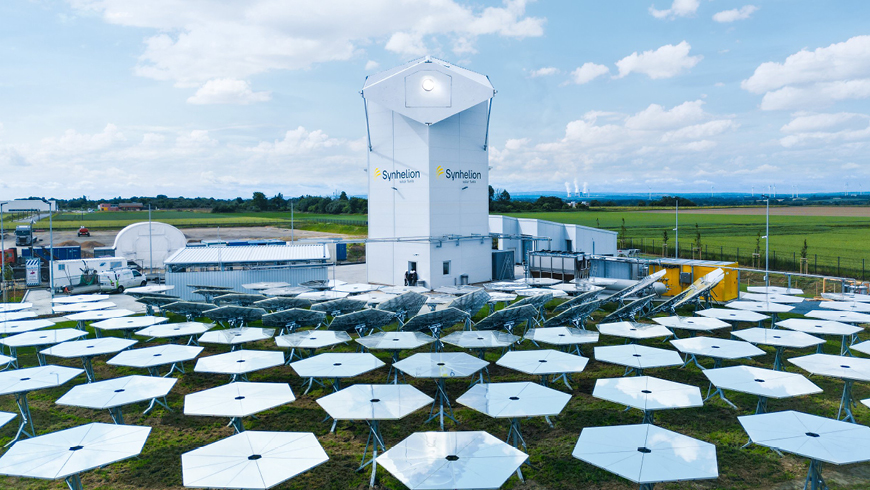Electrified company fleet also for employees

The ETH spin-off Synhelion has opened the first industrial plant for the production of solar fuels. With the help of an innovative high-temperature heat storage system, solar energy is used to produce climate-neutral fuels around the clock. This ground-breaking development could change the energy and property sector forever.
The world’s first industrial plant for the production of solar fuels is up and running. In collaboration with Empa, the ETH spin-off developed an innovative material for high-temperature heat storage that enables the plant to operate around the clock – even without sunlight.
The plant uses the power of the sun to convert CO₂ and water into synthetic fuels such as paraffin, petrol and diesel. This closed CO₂ cycle is a pioneering model that could pave the way for a sustainable energy economy. Particularly impressive is the solar energy source and the fact that operation is also maintained at night thanks to innovative heat storage technology.
Heat storage at 1200 degrees
The key to this innovation lies in the plant’s heat storage system. A large array of mirrors concentrates sunlight onto a single point, reaching temperatures of up to 1200 degrees Celsius. This heat drives the chemical process that produces fuels from CO₂ and water. Excess heat is stored in specially developed bricks, which keep the system running even at night.
The challenge in developing the material was to find bricks that could withstand the extreme temperatures and corrosive water vapour atmosphere. In a two-year project, Empa researchers worked closely with Synhelion to develop a ceramic material that meets the high requirements and can also be produced cost-effectively.
From research to practice
For the Empa researchers, it was a unique experience to see their research realised on such a large scale. The material, which was tested in a specially developed high-temperature tube furnace, withstood the extreme conditions and is now installed in the “DAWN” plant. This technological achievement not only offers a sustainable solution for fuel production, but could also play a decisive role in the construction and property industry in the future.
Looking to the future
While the “DAWN” plant is already in operation, Synhelion and Empa are planning further steps. From 2025, an even larger plant is to be built in Spain, which will utilise higher temperatures and greater storage capacities to further increase the efficiency of fuel production. This development underlines the potential of renewable energies and shows how innovations can lead the energy and property industry into a sustainable future.